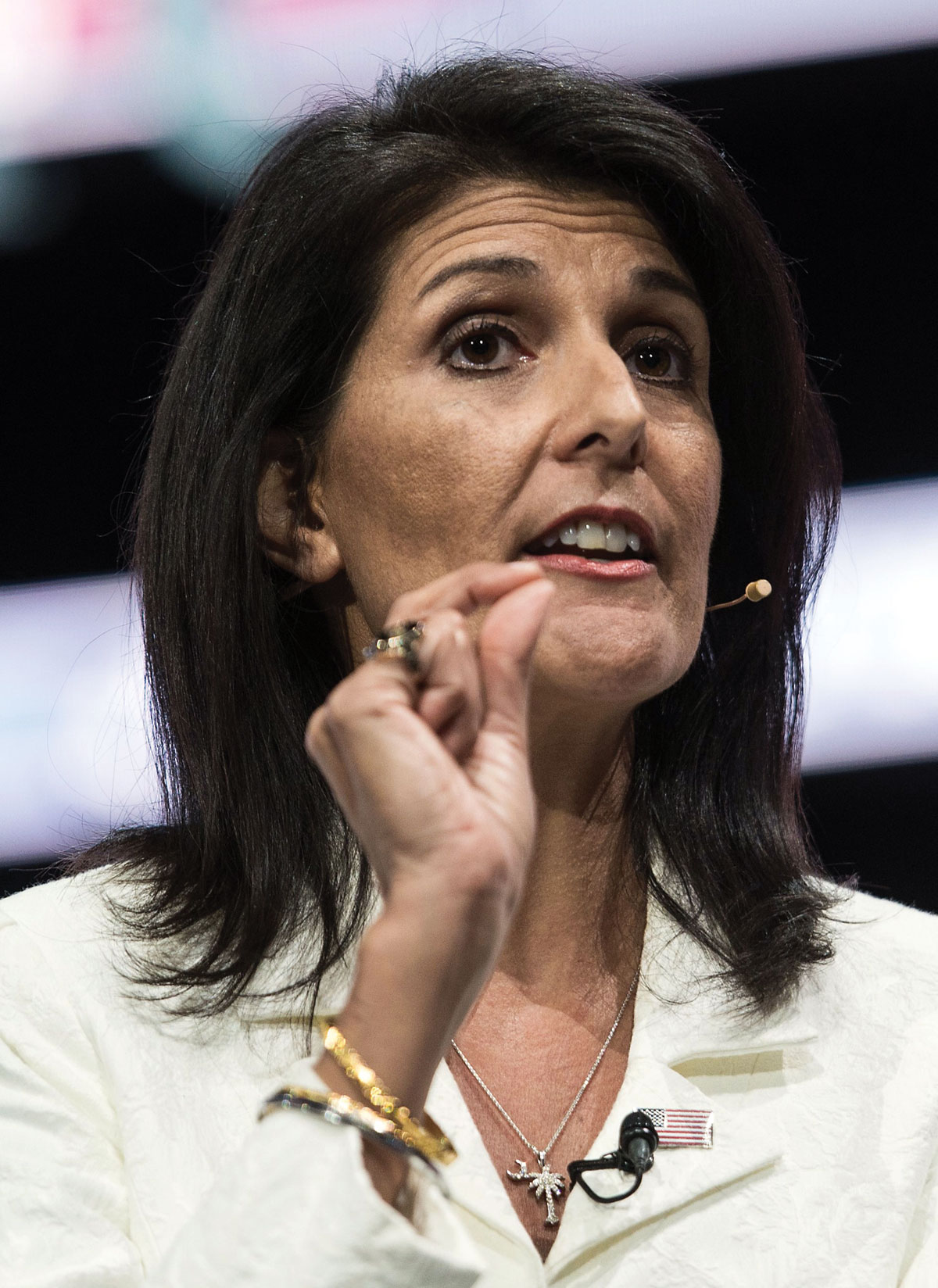Mother was Denied Judgeship in India, Claims Nikki Haley
U.S. Ambassador to the United Nations Nikki Haley addresses the American Israel Public Affairs Committee (AIPAC) policy conference in Washington, D.C., March 27. (Nicholas Kamm/AFP/Getty Images)
U.S. Ambassador to the UN Nikki Haley has claimed her mother, who had studied to be a lawyer in India, was not allowed to sit on the bench as a judge because she was a woman, writes Yoshita Singh. – @Siliconeer #Siliconeer #NikkiHaley @NikkiHaley #UN #UnitedNations #IndianAmerican #Immigration
“I am a big fan of women. I think there’s nothing they can’t do. And I think any democracy that has allowed themselves to really lift up women has benefited from it,” Haley said when asked about the role of women following her speech to the Council on Foreign Relations in New York, March 29.
She went on to briefly narrate the story of her mother’s life in India where she was among the first female judges but was not allowed to sit on the bench as she was a woman.
“And so I think, this is near and dear to my heart because my mother you know, when you didn’t have a lot of education in India, my mother actually was able to go to law school. And she was actually put up to be one of the first female judges in India, but because of the situation with women she wasn’t allowed to sit on the bench. But how amazing for her to watch her daughter become governor of South Carolina and U.S. Ambassador to the United Nations,” Haley said.
Haley was born Nimrata Randhawa to Ajit Singh Randhawa and mother Raj Kaur Randhawa, who had emigrated from India to Canada and then to the U.S. in the 1960s.
However, Justice Anna Chandy was the first female judge in India and also the first woman in India to become a High Court judge. She was appointed as a munsif in Travancore in 1937.
Haley added that nations’ goal should always be to empower women and show how they can be fantastic leaders, “and to help them get there and when they are successful, support them on it and encourage them on that.”
Underscoring that legal immigration is the fabric of America, Haley added that she is the “proud daughter” of Indian immigrants and stressed that people should not be banned from countries due to their religion.
“I’m the proud daughter of Indian immigrants who reminded my brothers, my sister and me everyday how blessed we were to be in this country,” Haley said responding to questions.
She said she believes that the fabric of America is “legal immigration. So from that standpoint that is something that is near and dear to my heart and I very much support.”
Haley was asked if Trump’s immigration policies and vetting people coming in from Muslim majority nations carry the risk of alienating the three million Muslim Americans already in the country.
“We should never ban based on religion. Period. I don’t think that’s what this is,” she said adding that there are another dozen Muslim countries that could have been on the list of the seven countries on Trump’s executive order but are not.
“We will never close our doors in the U.S. but what we did do is take a pause and say how are we going to keep our people safe,” she said adding that she hopes the vetting process gets better and the administration moves forward with it.
She said Trump’s travel ban aimed to make sure that no danger comes into the country.
“This is not about not wanting people in. This is about keeping the terrorists out,” she said.
Haley referred to the recent terror attack in London, saying “when you look at situations like what happened in London, not just the president but everyone is trying to make sure we are keeping our people safe.”
The attack on the UK Parliament, however, was perpetrated by a man identified as Khalid Masood who, according to media reports, was not an immigrant but born in the county of Kent in southeast England.


